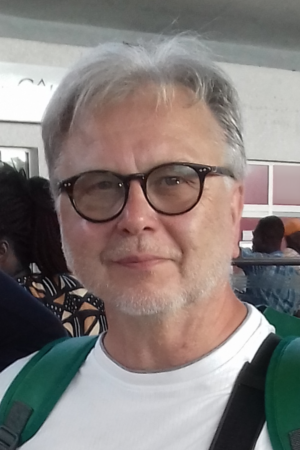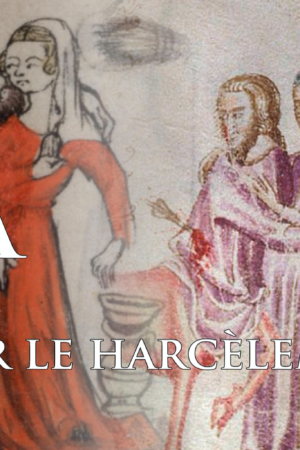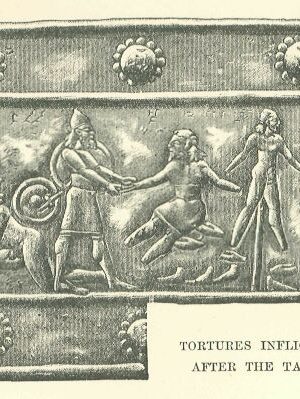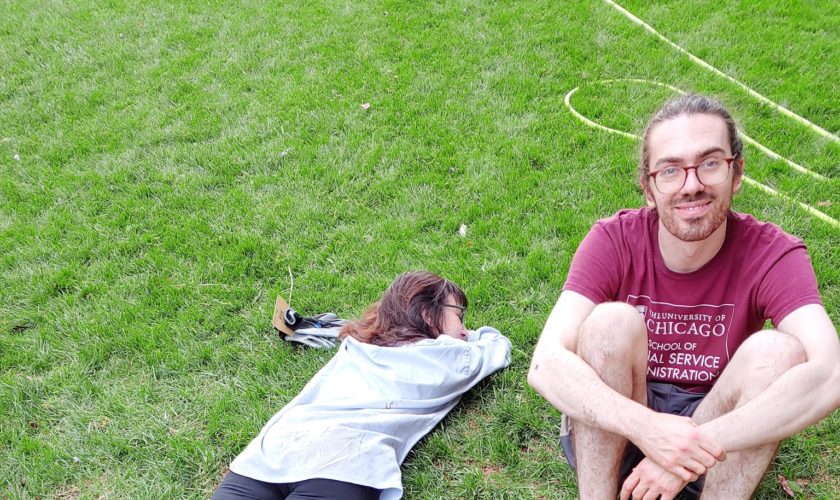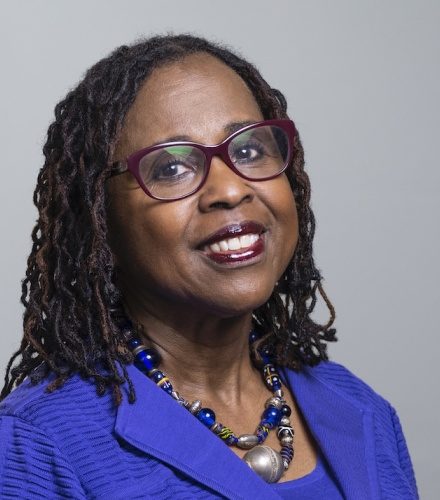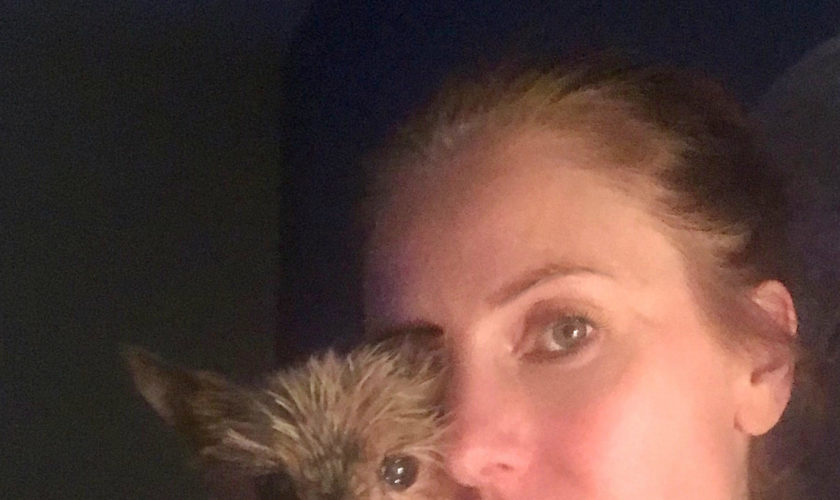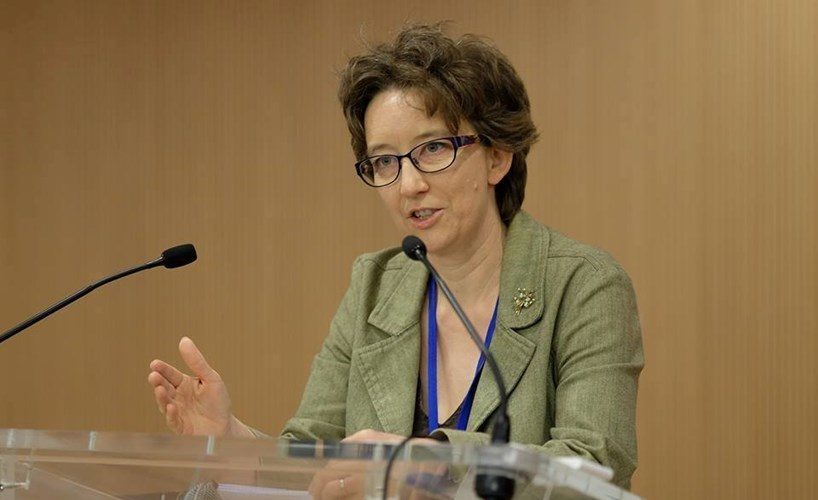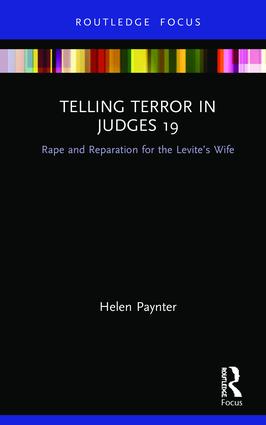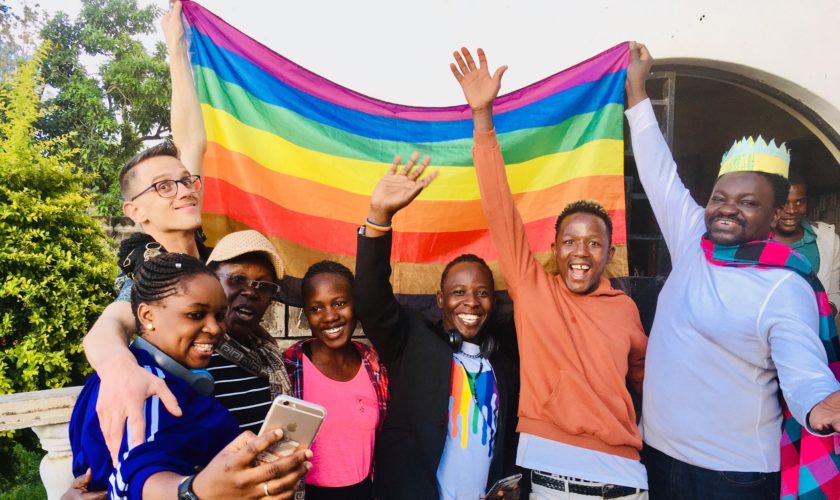Rabbi Dr. Barbara Thiede
When my university (University of North Carolina, Charlotte) went on spring break March 2, I made the decision to see if I could put all my classes online. Because I also teach online for ALEPH Ordination Programs (a Jewish seminary which ordains rabbis, cantors, and rabbinic pastors), doing so was not as difficult for me as for some of my colleagues. In the meantime, my spouse, Ralf, and I moved roomfuls of furniture around in our little ranch house to accommodate our son and daughter-in-love, who moved out of a tiny one-room studio apartment in Brooklyn, New York, into our tiny home library (now outfitted with a bed, sitting area, and workspace!). We joked about how much the room would go for on Airbnb and promptly dubbed it R&B (Ralf and Barbara). We’ve been alternating the cooking, so I’ve been treated to some real culinary variety.
Next, we started a huge project in our backyard, clearing away a veritable mini-forest of dead shrubbery that wisteria had marked, claimed, and devoured, and built three raised garden beds. This also necessitated digging up loads of mulchy dirt, moving it aside, creating the beds, refilling the beds with the dirt and home grown compost, and planting our vegetables. This explains the picture of me lying face down in the grass while our son grins up at his dad. His back is stronger. So far, everything is thriving and we look forward to the first products gracing our table.

For the first weeks, working was very difficult indeed. Finding a
routine was challenging. My students have felt the stress and, since we
take the time to check in, it is clear to me that they are facing a
range of serious issues. One is a refugee whose mother
works at Wal-Mart; another is taking care of an elderly and sickly
grandmother. I’ve known what it is to have students in vulnerable
situations every semester of my teaching life, but now, I think it is
fair to say, they
all are vulnerable. One student has a daughter whose best friend
died of Covid-19 — she was in her early thirties; another was clearly
suicidal and needed connections with health care professionals.
Sometimes, I start our check-ins with lighter questions
just to relieve the stress: “A package just arrived at your door. It is
perfectly safe to open it. What’s inside?” Answers included, of course,
masks, cures, vaccine. And they included: “My mom!” “A puppy!” “A
boat!”
Which aspects of your work past and present might be particularly interesting for supporters of the Shiloh Project?
My current book, Male Friendship, Homosociality, and Women in the Hebrew Bible: Malignant Fraternities, treats a set of texts that demonstrate how male friendship depends on women’s bodies for its creation and sustenance. I am also preparing a paper for SBL entitled “Gang Rape, Murder, and Dismemberment in Judges 19-21 and Little Bee: How Biblical and Modern Authors Inflict Moral Injury.”
How are you bearing up and what’s helping you most? Am I behind in my work? Of course. Do I feel — all the time — that I can’t actually grasp the depth of dislocation the world is experiencing? I do. Do I sometimes resent the “we can get through all this” when so many won’t? Yes. Do I fear that we will not learn the lessons of this experience? I do. Humankind is notoriously insufficient at caring for humanity and the planet it lives on.
I am bearing up by walking a lot, by gardening as much as I can, and by listening to a lot of Sephardic-Ladino-Iraqi-Turkish music. It reminds me to dance. And I hope and pray for humanity to pay attention to the obvious lesson, here. We share this world unequally. We suffer its pain unequally. We are obliged to flatten that curve, too.

